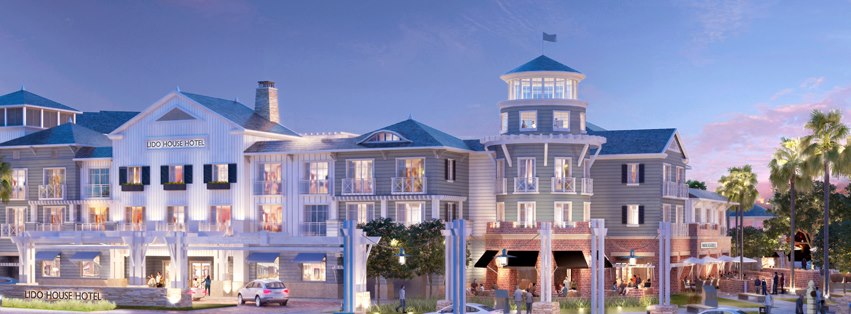
— Courtesy Lido House Hotel
Several plan and code amendments were approved this week as part of the process to develop a boutique hotel on the old city hall site.
After nearly two hours of discussion, including a dozen public speakers, the Planning Commission voted unanimously 5-0 in approval during the Monday meeting. Commissioner Brad Hillgren abstained and Commissioner Kory Kramer was absent.
About 50 people attended were in the audience as commissioners approved amendments to the general plan, coastal land use plan and zoning code to change the land use designation and zoning from public facilities to mixed-use and a side development review, conditional use permit and a traffic study.
The proposed 130-room Lido House Hotel will be the “gateway to the Newport Peninsula,” said R.D. Olson Development CEO Bob Olson.
The “Newport nautical” designed hotel would include a restaurant, spa and fitness center, pool, meeting space, viewing deck, pubic spaces and more.

— Photo by Sara Hall ©
“We think it’s a very important statement, not just for Lido Village, but for the peninsula,” said Olson, a Balboa Island resident.
It will be the “quintessential beach house,” said Greg Villegas, associate vice president of WATG, the design group working on the project. It will create a “beacon” in the peninsula entryway, he added.
A dozen public speakers had a range of comments and concerns, including the large grassy area, traffic, project timeline, parking (particularly in the Finley track), and more.
The two main concerns from residents were the mixed-use designation language that could include an option for residential units and truck access.
As overwhelmingly supportive of the hotel that most residents are, they are also that strongly against the idea of residential units that was added, one Lido local noted.
This sentiment was echoed by several speakers, saying they were excited for the hotel and that it would help revitalize the area, but the possibility of residential units was not what they wanted.
“We don’t have a residential project before us for approval,” Planning Commission chair Larry Tucker clarified. “We have a land use change, but any residential project would have to come back through the entire process.”
The residential language is creating some anxiety, commissioner Tim Brown said.
“My preference would be that we move this forward without the 99 residences,” he said.
Commissioner Jay Myers said he was “very much for elimination” of the language in the amendment that included a residential option in the mixed-use designation. Commissioner Peter Koetting also agreed.
With public facilities, it would still be considered mixed-use, Community Development Director Kim Brandt explained, because it is a combination of a commercial component for the hotel and public facilities.
The elimination of the residential units was included in the approved motion.
Another topic of concern was access for trucks and how they will be rerouted because of an alley closure.

— Photo courtesy R.D. Olson Development
Closing down the alley that the trucks utilize will make access more difficult, increase traffic and create more noise, locals complained.
The closure of the 32nd Street access is “simply bad planning,” said Gordon Hart, representative of Lido Partners, the company that owns Via Lido Plaza.
Delivery trucks should go to the back of the site, he said.
“That’s where they’ve been for 65 years,” Hart said.
He also briefly mentioned the lawsuit between Lido Partners and the city. The two groups are fighting over the right to use the alley.
Hart suggested both sites share truck access on the street.
Several commissioners also expressed concern about truck access to the site.
It’s a smaller hotel, they’ll be using smaller trucks, Villegas explained
“I think operations can handle the situation,” he said.
The plan was already vetted, to some extent, by the council during the RFP process before reaching the Planning Commission, Tucker pointed out
“It’s not really our place, at least in my opinion, to start changing the plan that the council wants us to consider,” he said.
In this particular case, the applicant has done well in presenting a complete plan, he added, so there is not much need for changes by the commission. They should consider how reasonable the project is, he added, rather than “nitpicking” at it.
The environmental document is adequate, Tucker said. It’s not perfect, but nothing ever is, he added.
City Council will likely hear the matter on Sept. 9. The California Coastal Commission will also need to review and approve the project. Officials hope to open the doors by summer 2017.
For more information about the project, visit lidohousehotel.com.




